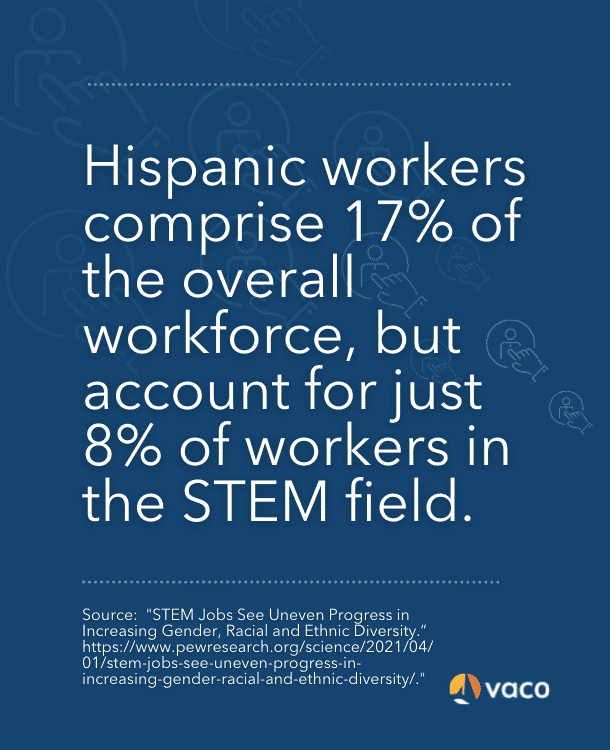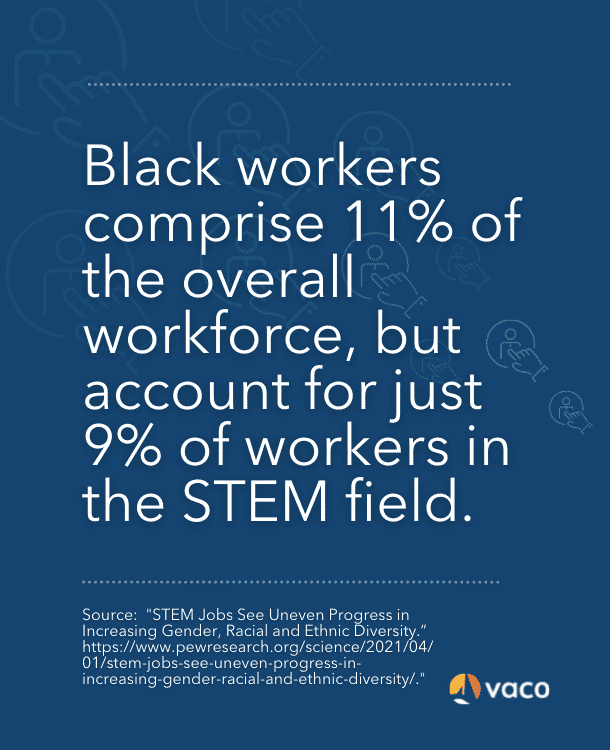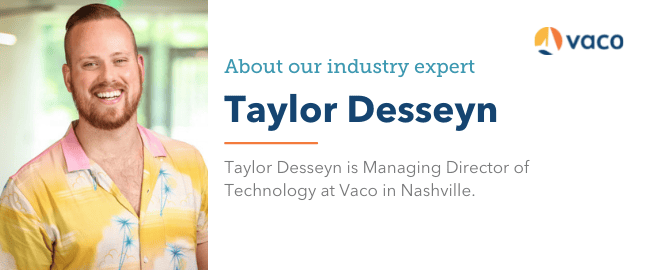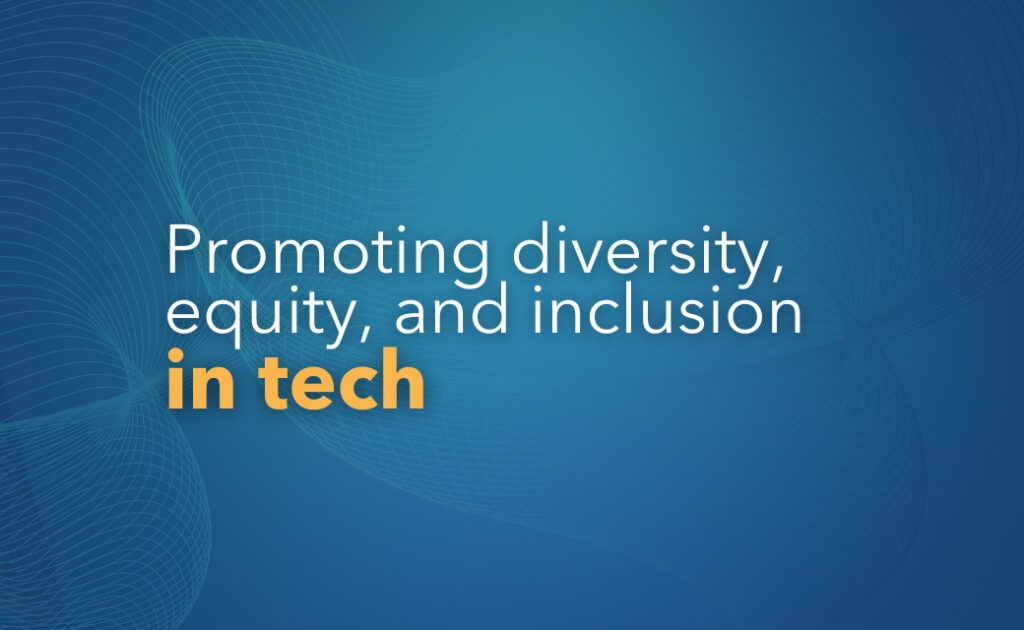Recently, Vaco’s Nashville office held a roundtable discussion featuring established technology professionals in Music City. Hosted by Taylor Desseyn, the open-forum discussion shed light on several important hiring/recruiting topics in the tech space.
According to the U.S. Equal Employment Opportunity Commission, employment in computer science and engineering is growing twice as fast as the national average. However, that growth is not fully reflected in certain populations.
Black and Hispanic workers hold a comparatively lower percentage of science, technology, engineering and math (STEM) jobs. According to the Pew Research Center, Hispanic workers represent 17% of total employment across all occupations, but only 8% in the STEM workforce. Black workers make up 11% of all employed adults, but only 9% of workers in STEM occupations.

Women also continue to be underrepresented in computer and engineering occupations, where they account for 25% of computer jobs and just 15% of engineering jobs.
This is why it’s crucial for companies in the tech sector to create a culture that nurtures and supports diversity, equity and inclusion (DEI). At a recent Vaco Nashville roundtable, a panel of experienced IT leaders discussed their experiences in trying to create and maintain environments that recognize and celebrate the contributions of all team members.
They also shared four keys to successfully promoting DEI in the tech sector.
Set goals and form a plan
According to one panelist, it’s not enough for companies to simply say they want to improve DEI. They have to actively do something about it; they have to prove they want to make DEI a strategic centerpiece.
It starts with understanding how DEI shows up in your organization today and where the opportunities exist. From there, you can establish specific goals and form a plan to accomplish them.
“Organizations have to ‘show up.’ That’s a very common phrase in the DEI space. How do they do that? They set goals, make a plan and do the hard work required to get to the place where they are seen as an organization that showcases DEI.”
TECH ROUNDTABLE PANELIST
Here are a few goals the group cited as good practices to include in a DEI plan:
- Make the company culture more inclusive by creating opportunities and removing barriers at the same time
- Refine the recruiting process to mitigate bias and expand sourcing networks
- Showcase your commitment to DEI during the interview process by having diverse interview panels
- Ensure employees from underserved communities have what they need to be successful by evaluating their experience at each stage of the employee lifecycle
Many companies have found success creating internal DEI committees dedicated to leading conversations and launching initiatives. Vaco is one such company that has appointed a leadership council to celebrate, promote and focus on DEI. Change starts from within. This is one way to assess the state of DEI internally so you can take thoughtful steps toward sustainable change.
Tie DEI to your organizational mission
In a recent survey from Gartner, 88% of HR leaders said their organization has not been effective at increasing diverse representation. This is due in large part to a lack of clear career paths, inadequate exposure to senior leadership, and lack of mentorship.

To fix this, one roundtable panelist said it’s important for companies to acknowledge that growth benefits the employee and the employer:
“We want to invest in talent and help them grow, but we also know our team members are crucial to our future growth and success. I want to bring people to the team that can help us get to the next level and make us better, in the same way we should be setting up our talent for success every day.”
The panelist also said it’s important for leadership to recognize the differences in access and opportunity for underserved populations. This is one reason why many companies hire for culture add first, and then work to ensure their employees have access to the tools and training they desire to enhance their skill sets.
Different perspectives pay dividends
If you look at the most successful teams in history, many of them were led by people with wildly different perspectives and mindsets. The Beatles would not have made consistently great music if all four members saw the world like Ringo. The Los Angeles Lakers dominated the NBA for a decade on the strength of Magic Johnson and Kareem Abdul-Jabbar—two fundamentally different basketball players. Apple would not be the technical juggernaut it is today if Steve Jobs and Steve Wozniak saw eye-to-eye on everything.
The same can be said for recruiting talent to a tech team, according to one of the roundtable panelists.
He pointed out that teams who lack the benefit of multiple perspectives often don’t realize they’re missing out on a considerable audience of consumers, either with their products or with their messaging.
“When I think of what a team usually needs most, and how I go about finding the right talent to quickly fill those gaps, DEI plays a huge role. And when that team has different perspectives and different voices, they’ll have a way of building a product that is more innovative. This pays dividends in more ways than one.”
TECH ROUNDTABLE PANELIST
DEI is everyone’s responsibility
Creating a culture of DEI requires organization-wide ownership. Otherwise, it just won’t happen.
While it’s important for a company’s leadership to establish and enforce equal opportunity hiring practices, it’s equally as important to adopt a systems-level approach that enables DEI to show up throughout business operations.
It should be everyone’s responsibility to foster DEI in the workplace; to make sure all employees belong and understand the role they play in the company’s success. As one panelist put it:
““We all have to say that we will build up and grow people. We must understand where team members want to go and create the opportunities for them to get there.”
When it comes to promoting the continuous development of an inclusive, diverse and equitable work environment, Vaco is with you all the way.
Looking to diversify your talent pipeline? Contact the technology talent experts Vaco. We’d be honored to join your journey.
For more insight from Vaco Nashville’s tech roundtable, check out this recent blog post on how to improve remote work in the tech sector.

